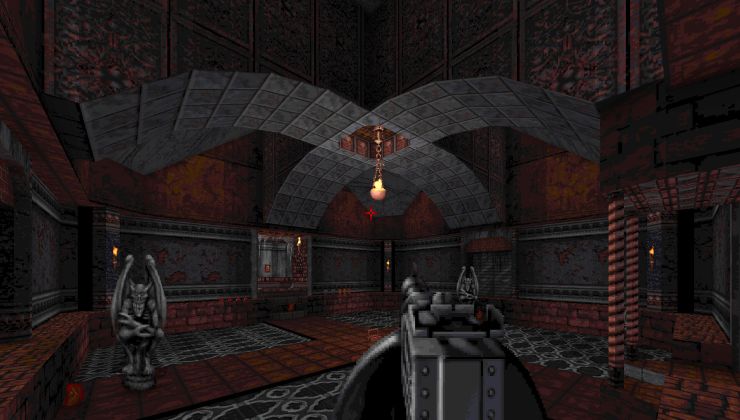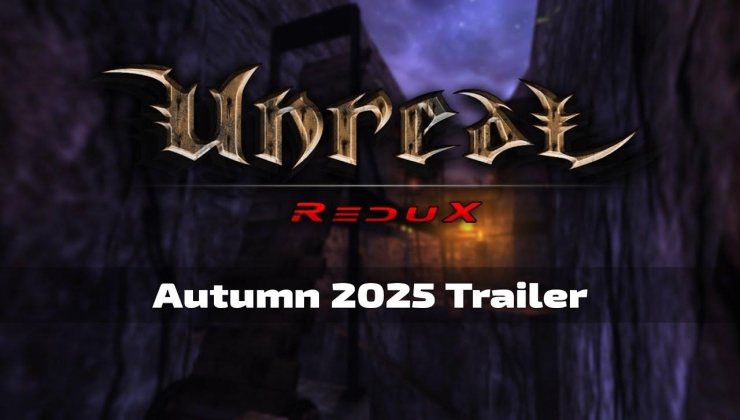
YouTube videos require cookies, you must accept their cookies to view. View cookie preferences.
Direct Link
Direct Link
From the release announcement:
QuoteIn a fortunate twist of events patching the Linux issues has resulted in an insane framerate increase on both platforms (averages around 100-110fps on our test machines now, before it was 40-70fps.)
To access the new version, you need to opt-in to the beta branch. I would recommend this, as the "stable" version is old and doesn't have the revamped gameplay.
It does seem to be pretty damn smooth.
About the game (Official)
Construct your fleet ship-by-ship by foraging in dangerous asteroid clusters and nebulas for resources and completing quests. Build up your modular base to include all the things a fleet commander needs; refineries, factories, power stations, shipyards and trade docks. Evolve your ship Captains careers, customize your ships using loot savaged from wreckages, become embroiled in action spanning huge playable areas and work across multiple planetary systems to bring order to Shallow Space.
An innovative ‘zone’ system lies at the heart of what we’ve dubbed the ‘Open-world Overhaul’ and through it NPC traffic will trade, mine and fight just as you do.
Pick-up missions to receive rewards in the form of ships modules and blueprints and construct defences, or go at it you own way by mining and trading. You’ll manage forces across multiple play areas all running realtime in a universe teaming with life.
Some you may have missed, popular articles from the last month:
All posts need to follow our rules. Please hit the Report Flag icon on any post that breaks the rules or contains illegal / harmful content. Readers can also email us for any issues or concerns.
This sort of thing is always nice to hear and echoes my own experiences. The more platforms/compilers/contexts you can build/run your game on or in, the more chances you have to find new perspectives on things you may not have previously identified as problematic - even when you're using a closed source third party engine like Unity.
9 Likes
I'm still not sure what they mean when they use the term "open world".
The game looks like a space strategy game. Where and how does the "open world" aspect kick in?
The game looks like a space strategy game. Where and how does the "open world" aspect kick in?
2 Likes
I'm still not sure what they mean when they use the term "open world".You're not forced down a set path, you essentially do what you want.
The game looks like a space strategy game. Where and how does the "open world" aspect kick in?
1 Likes
That's great to hear. Something more to show to all those Windows trolls sieging Linux threads in Steam. They might profit.
2 Likes
I'm still not sure what they mean when they use the term "open world".You're not forced down a set path, you essentially do what you want.
The game looks like a space strategy game. Where and how does the "open world" aspect kick in?
So the games have persistence? I had the impression you played games like in every other 4x/strategy game. Aren't the games session based? Aren't there maps? Is there a universe in which you can travel?
0 Likes
I'm not entirely sure what you're getting at. It's an open-world open-ended space game, you build up your fleet and do whatever you want by the looks of it.I'm still not sure what they mean when they use the term "open world".You're not forced down a set path, you essentially do what you want.
The game looks like a space strategy game. Where and how does the "open world" aspect kick in?
So the games have persistence? I had the impression you played games like in every other 4x/strategy game. Aren't the games session based? Aren't there maps? Is there a universe in which you can travel?
0 Likes
I guess the question is "Then what did you do before?"I'm not entirely sure what you're getting at. It's an open-world open-ended space game, you build up your fleet and do whatever you want by the looks of it.I'm still not sure what they mean when they use the term "open world".You're not forced down a set path, you essentially do what you want.
The game looks like a space strategy game. Where and how does the "open world" aspect kick in?
So the games have persistence? I had the impression you played games like in every other 4x/strategy game. Aren't the games session based? Aren't there maps? Is there a universe in which you can travel?
0 Likes
Now this looks interesting. I been waiting on a good space mining game for a while.
0 Likes
Are those actual three dimensional battles I'm seeing, or pseudo?
0 Likes
the battles are three dimensional.
The game seems too promising to mee .
My only argument is breaking the playable space in zones.
That's kind of a downer.
I mean space is one and united. Do we want to have 'roads' in space?
The game seems too promising to mee .
My only argument is breaking the playable space in zones.
That's kind of a downer.
I mean space is one and united. Do we want to have 'roads' in space?
0 Likes
the battles are three dimensional.
The game seems too promising to mee .
My only argument is breaking the playable space in zones.
That's kind of a downer.
I mean space is one and united. Do we want to have 'roads' in space?
Cool.
More likely that's a logistics based thing. For example let's say we have x amount of space expressed by numbers. In a computer this would likely be a floating point number, and computers can only handle a certain size depending on architecture - not only that, but mathematical operations on these floating point numbers reduce the accuracy over time and size; this is why games like minecraft have their worlds split in to zones/chunks.
It could also be to do with data management too - an *infinitely* large play area with all its intricacies is going to generate a lot of data to compute; this will lead to slow downs. I'd be interested in what happens at borders between these zones, likely an object just translates from one zone to the other.
Last edited by Luke_Nukem on 15 Oct 2016 at 9:18 pm UTC
0 Likes









 How to setup OpenMW for modern Morrowind on Linux / SteamOS and Steam Deck
How to setup OpenMW for modern Morrowind on Linux / SteamOS and Steam Deck How to install Hollow Knight: Silksong mods on Linux, SteamOS and Steam Deck
How to install Hollow Knight: Silksong mods on Linux, SteamOS and Steam Deck